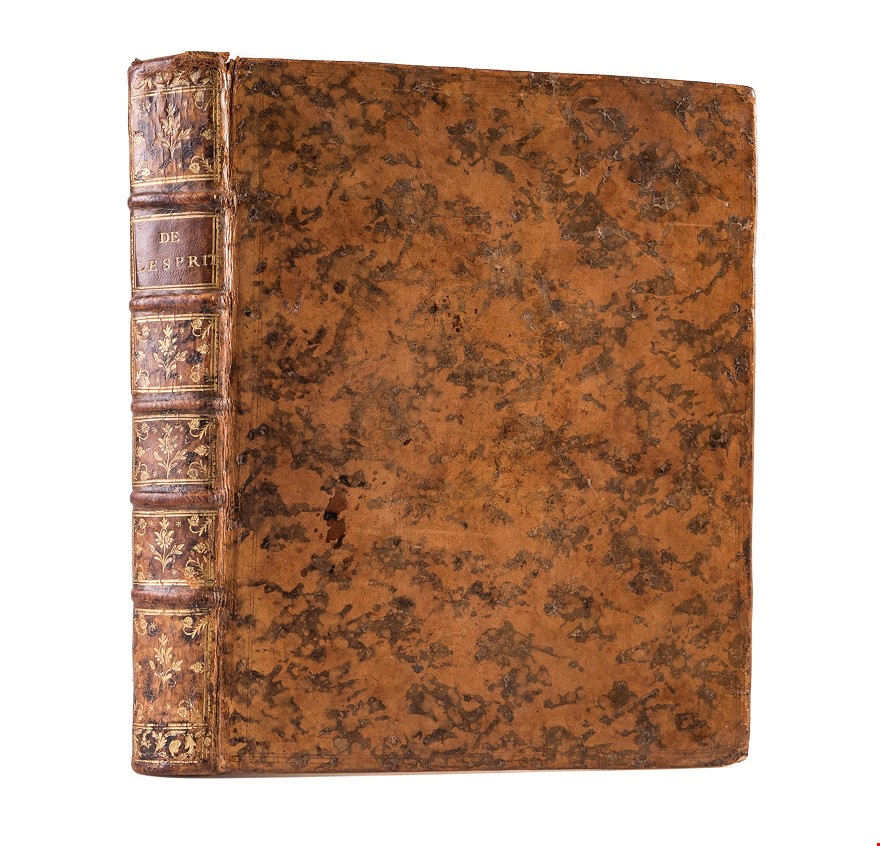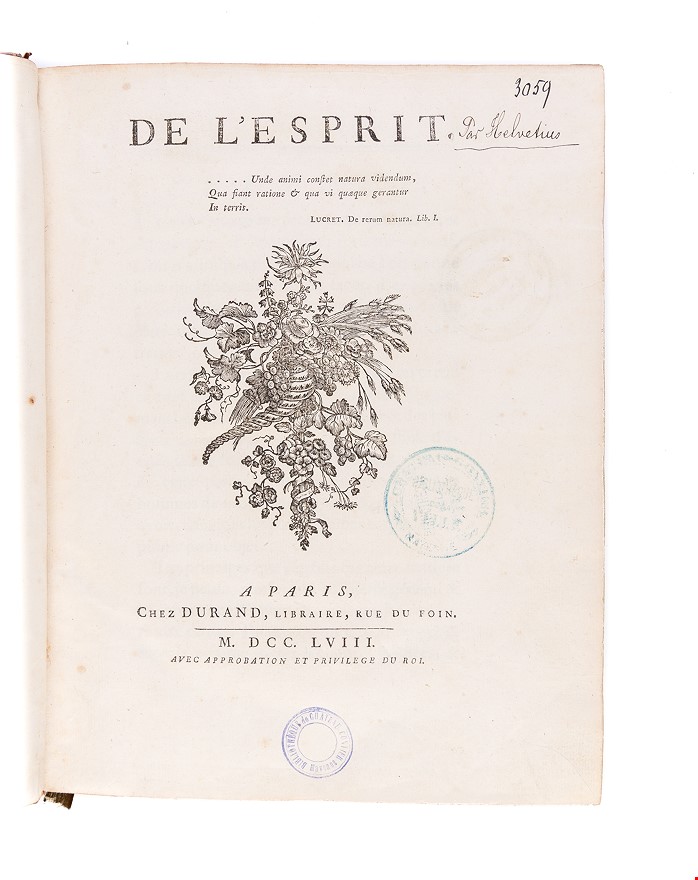De l'Esprit.
HELVETIUS Claude Adrien (1758.)
£1500.00
Please contact us in advance if you would like to view this book at our Curzon Street shop.
Elaborate woodcut cornucopia of flowers and fruits signed 'Papillon Sc.' to the title-page, woodcut head- and tail-pieces.
4to (258 x 204mm). [4], xxii, 643, [1], pp. Contemporary mottled calf, covers with a blind fillet border, spine with five single raised bands outlined in gilt, the second panel lettered in gilt on a red morocco label, the rest with gilt floral tooling, red edges, marbled endpapers (front joint starting to crack, corners rubbed, headcap slightly chipped). Paris, Durand.
Second Quarto Edition of Helvétius’ De l’Esprit, his first major work and a truly great succès de scandale: “no book during the eighteenth century, except perhaps Rousseau’s Émile, evoked such an outcry from the religious and civil authorities or such universal public interest” (Smith, The Publication of Helvétius’s De l’Esprit, p. 332).
Though accused by Voltaire of lacking originality, Bentham read Helvétius in 1769 and immediately determined to devote his life to his principles, saying: ‘What Bacon was to the physical world, Helvétius was to the moral. The moral world had therefore had its Bacon, but its Newton is still to come.’ Moreover, James Mill took Helvétius as his guide in the education of his son John Stuart (Russell, History of Western Philosophy, p. 749).
Following Locke’s conception of mind as tablula rasa, Helvétius ‘considered the differences between individuals entirely due to differences of education: in every individual, his talents and his virtues are the effect of his instruction ... Men are born ignorant, not stupid; they are made stupid by education’ (Russell, op cit., p. 749). It therefore followed for Helvétius that moral constructs such as good or evil cannot be held to be inherent characteristics of individuals, a position that unsurprisingly provoked the condemnation of his work by both the Sorbonne and the Church.
The publication of De l’Esprit was an unusually complicated affair, largely due to Helvétius’s decision to publish through the official channels in France. The text was passed by an initial censor and the first few copies were kept by the author for personal distribution. However, the publication was suspended early on in the printing process and a second censor called for large sections to be removed. The publisher Laurent Durand, who had been responsible for Diderot’s clandestine works, immediately accommodated the second censor’s requirements, setting up a completely new type modelled upon the original, minus the censored pages. However, Durand also stowed away the original type-set, which was later used for the first of his surreptitious editions, referred to by Smith as the Second Quarto Edition. This is one such edition, which uses the original typeset as well as additional new type to replace the passages impounded by the second censor.
Provenance: Bibliothèque de Château-Gontier Mayenne / Bibliothèque de la ville Château-Gontier Mayenne. Contemporary manuscript attribution and inventory number in ink to title page, three library stamps to title page, the attempted erasure of one of which has created a small hole, as well as four further stamps throughout: lower edge of p. 97, margin of p. 185 extending slightly to text, margin of p. 611 extending slightly to text, lower edge of final page, the Approbation.
Some occasional spotting, otherwise a clean, crisp copy.
Smith, Bibliography of the writings of Helvétius, E.2A.
Stock Code: 227951





